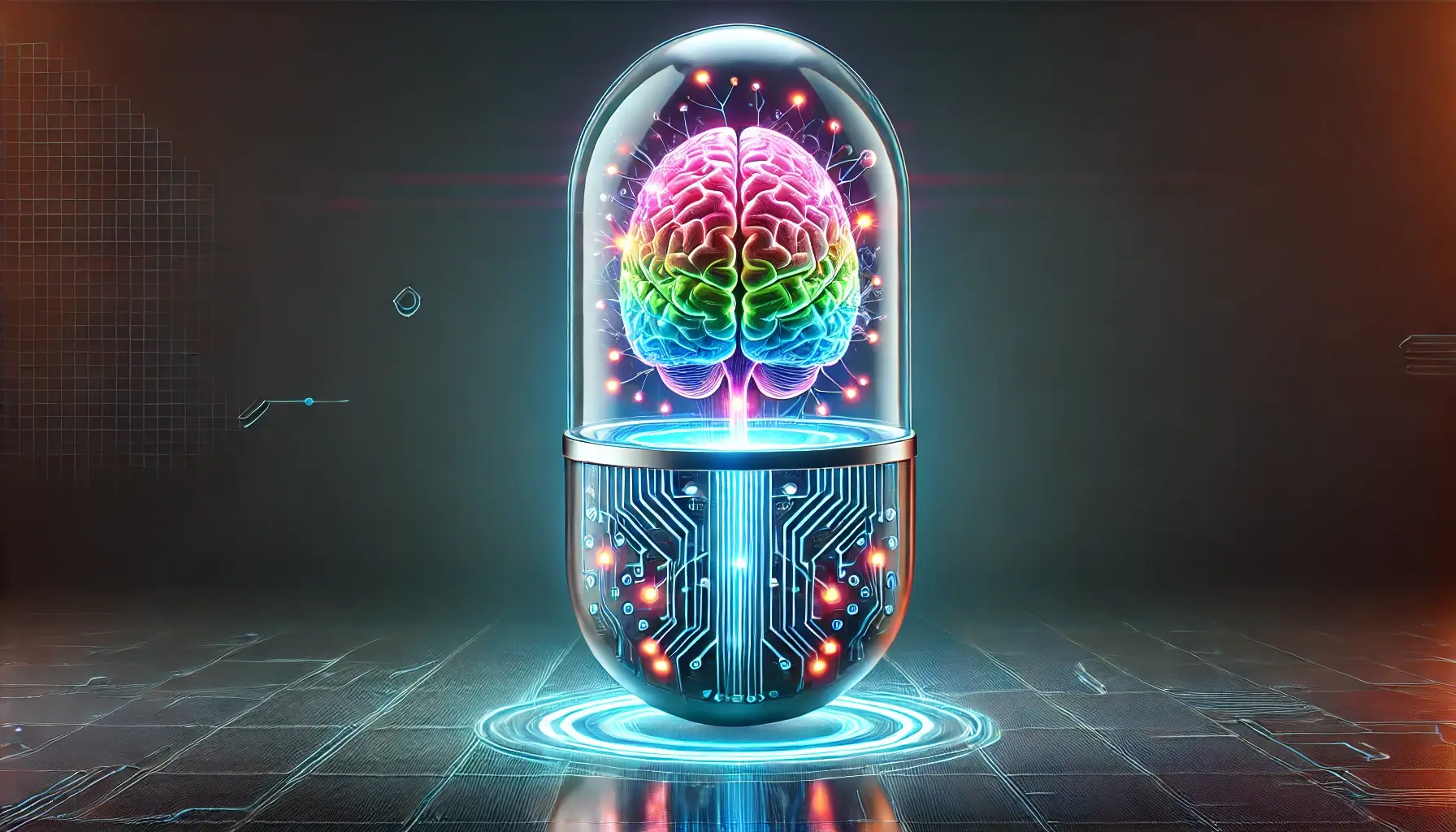Psychedelic mushrooms have been used for centuries in spiritual and healing traditions, but only in recent decades has modern science begun to uncover how these fungi may profoundly impact brain health and cognitive performance. At the center of this groundbreaking research is psilocybin, the primary psychoactive compound found in mushrooms of the Psilocybe genus.
Clinical studies from renowned institutions like Johns Hopkins University, Imperial College London, and UCLA now suggest that psilocybin may do far more than induce altered states of consciousness—it may enhance cognition, improve emotional regulation, and even stimulate the growth of new brain connections.
What Is Psilocybin?
Psilocybin is a naturally occurring psychedelic compound present in over 200 species of mushrooms, including well-known varieties like Psilocybe cubensis, Psilocybe cyanescens, and Psilocybe semilanceata.
Once ingested, psilocybin is metabolized into psilocin, which binds to serotonin receptors in the brain—specifically, the 5-HT2A receptors. This interaction has significant effects on mood, perception, and cognitive function.
Crucially, psilocybin does not activate dopamine reward circuits linked to addictive behavior, which explains its low potential for dependency compared to many other psychoactive substances.
For Researchers: Curious about Psilocybe species? Our microscopy-ready spore collection allows you to study the genetic diversity of over a dozen verified strains—ideal for taxonomy, microscopy, and educational research.
The Neuroscience of Psilocybin: How It Enhances Brain Function
Recent neuroscience research is revealing the mechanisms behind psilocybin’s remarkable effects on brain activity and cognitive flexibility:
1. Breaking Down Neural Barriers
When psilocybin takes effect, the brain enters a state of enhanced connectivity. Regions that usually operate independently begin communicating across networks, creating novel neural pathways.
This hyperconnected state has been associated with:
- Enhanced creativity and ideation
- Improved problem-solving skills
- Flexible, non-linear thinking
- Greater abstract reasoning and insight
A 2020 study in Nature Communications showed that psilocybin disrupts and reorganizes functional brain networks—essentially reshaping the architecture of thought. More recent research published in Nature in 2024 demonstrated how psilocybin dramatically “desynchronizes” brain activity, temporarily dissolving established neural networks, particularly those involved in our perception of self, space, and time.
In summary, psilocybin may:
- Strengthen connections between brain regions
- Enable new patterns of thought
- Facilitate open-mindedness and innovation
2. Boosting Neuroplasticity
Perhaps most fascinating is psilocybin’s ability to enhance neuroplasticity—the brain’s ability to reorganize itself and form new synaptic connections.
Research published in Cell Reports demonstrated that a single dose of psilocybin significantly increased the density and size of dendritic spines in the prefrontal cortex—a region essential for decision-making and mood regulation. The landmark study found that a single administration led to approximately 10% increases in spine size and density, with effects occurring rapidly (within 24 hours) and persisting for over a month.
This structural growth suggests enhanced capacity for:
- Learning and memory formation
- Cognitive flexibility
- Adaptive thinking in response to new experiences
3. Rewiring Emotional Processing
Psilocybin’s effect on the amygdala—the brain’s emotional processing center—may help explain its therapeutic potential.
By modulating activity in the amygdala, psilocybin appears to:
- Increase emotional empathy
- Reduce fear-based reactivity
- Ease symptoms of anxiety and depression
Research published in Scientific Reports found that psilocybin treatment decreased cerebral blood flow in the amygdala, and this reduction correlated with decreased depressive symptoms. A systematic review published in Nature Medicine further highlighted psilocybin’s capacity to enhance emotional responsiveness, particularly in individuals with treatment-resistant depression.
Therapeutic Applications: Beyond the Psychedelic Experience
The growing body of clinical evidence for psilocybin has revealed several promising therapeutic applications:
Depression and Anxiety Treatment
Psilocybin-assisted therapy has shown significant success in reducing symptoms of depression and anxiety. Trials led by Johns Hopkins found that even one to two sessions can lead to long-lasting improvements in mood, outlook, and psychological resilience.
Most remarkably, these benefits often persist for months after treatment, suggesting that psilocybin may help fundamentally reset dysfunctional neural patterns rather than simply masking symptoms.
Addiction Recovery
Preliminary research suggests psilocybin may help break addiction cycles by altering the neural pathways involved in compulsive behaviors. Its promotion of neuroplasticity makes it a powerful tool for retraining the brain—a key component in sustainable recovery from substance use disorders.
For Mycology Enthusiasts: We offer sterile, lab-verified spore syringes ideal for side-by-side comparison of Psilocybe species under the microscope. Each specimen is carefully prepared in our controlled laboratory environment to ensure the highest quality for your research.
Our most popular variety, Golden Teacher (Psilocybe cubensis), is renowned among researchers for its distinctive spore characteristics and remarkable genetic stability. This strain features honeycomb-patterned spores that display unique morphological features when viewed under a microscope. Our Golden Teacher spore syringes are specially formulated for optimal clarity during microscopic observation, making them perfect for taxonomy studies, educational demonstrations, and comparative research.
Shop Golden Teacher Spore Syringes →
Microdosing: Subtle Benefits Without the Trip
Microdosing—the practice of taking 1/10 to 1/20 of a standard psychedelic dose—has gained popularity among professionals seeking cognitive enhancement without hallucinations.
Anecdotal reports from microdosers cite several potential benefits:
- Increased emotional stability
- Heightened cognitive clarity
- Enhanced creativity and intuition
- Reduced stress and social anxiety
While anecdotal evidence is abundant, placebo-controlled studies are still in progress. Early data suggest real potential, but more research is needed to fully understand optimal dosing protocols, safety considerations, and long-term impacts.
Research Resources: Our laboratory-verified spore syringes are produced in sterile environments for precise, documented research. Each syringe includes detailed strain information ideal for taxonomy and educational study.
The Future of Fungal Neuroscience
As scientific exploration of psilocybin deepens, it’s becoming clear that these fungi offer more than mystical experiences—they represent a new frontier in psychiatric innovation and neurological understanding.
Psilocybin may soon play a central role in:
- Treating PTSD, end-of-life anxiety, and major depressive disorders
- Enhancing creative problem-solving in professional settings
- Supporting cognitive wellness across age groups
With each new study, we move closer to unlocking psilocybin’s full potential for brain health and cognitive enhancement.
Explore Our Premium Spore Collection →
Disclaimer: This article is for educational purposes only. Psilocybin remains a controlled substance in many jurisdictions. All spores are sold strictly for microscopy and taxonomy research purposes only. Always follow local laws and regulations when conducting research.



